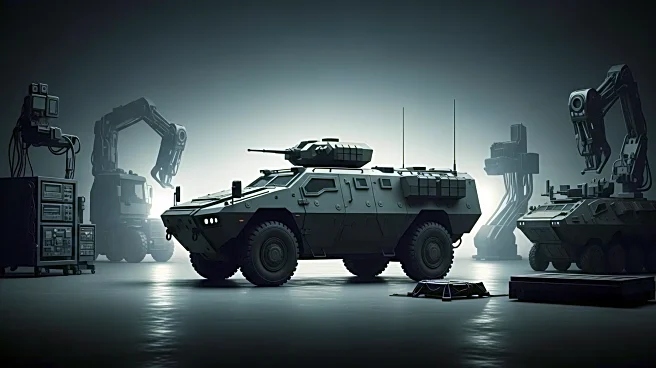What's Happening?
Russia is actively promoting its upgraded BMP-3 infantry fighting vehicle (IFV) to countries in the Asia-Pacific region. The BMP-3, manufactured by High Precision Systems, a subsidiary of the state-owned defense group Rostec, has undergone several enhancements, including a firmware suite for autonomous operation. These upgrades were informed by combat usage experiences. The vehicle was showcased at the Vietnam International Defence Expo (VIDEX) 2024 in Hanoi. Indonesia and South Korea are current operators of the BMP-3, with Indonesia's Marine Corps possessing 54 BMP-3F IFVs and 54 BT-3F amphibious armored personnel carriers. South Korea has operated 70 BMP-3 IFVs since 1996. Vietnam and Cambodia also have fleets of older BMP models.
Why It's Important?
The offering of upgraded BMP-3 IFVs by Russia to Asia-Pacific countries is significant as it reflects ongoing efforts to modernize military capabilities in the region. This move could enhance the defense capabilities of these countries, potentially altering regional security dynamics. For Russia, it represents an opportunity to strengthen military ties and expand its influence in the Asia-Pacific, a region marked by strategic competition. Countries like Indonesia and South Korea, already operating BMP-3s, may benefit from improved technology and operational capabilities, while Vietnam and Cambodia might consider upgrades to their existing fleets.
What's Next?
As Russia continues to market the upgraded BMP-3 IFVs, countries in the Asia-Pacific region may evaluate their current military needs and consider procurement options. This could lead to increased military spending and further modernization of armored vehicle fleets. Regional stakeholders, including defense ministries and military strategists, will likely assess the implications of acquiring advanced Russian military technology, considering both strategic benefits and geopolitical consequences.
Beyond the Headlines
The introduction of upgraded BMP-3 IFVs in the Asia-Pacific region may have broader implications for international arms trade and military alliances. It could influence the balance of power and prompt neighboring countries to enhance their own military capabilities. Additionally, the focus on autonomous operation technology in military vehicles highlights a growing trend towards automation and advanced warfare capabilities.








